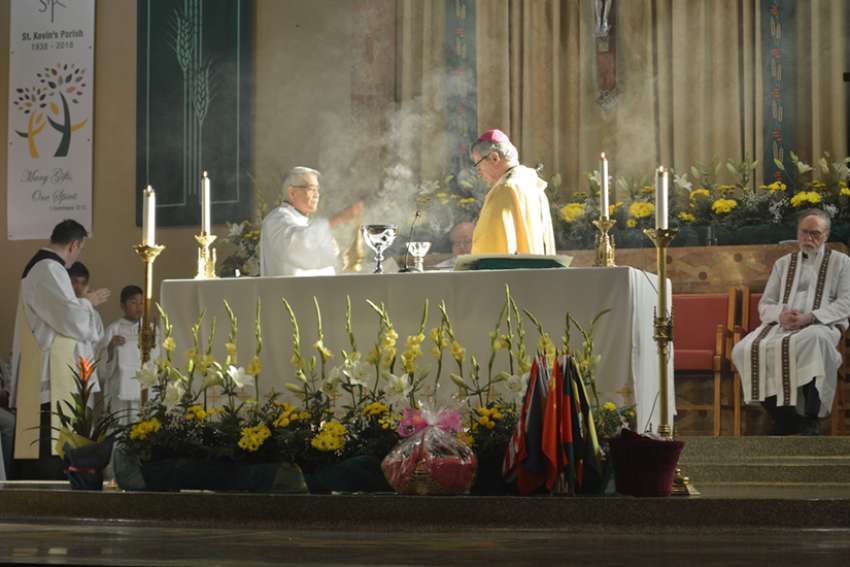As in urban parishes everywhere, St. Kevin’s lives out a vivid testament to Canada’s multicultural reality. But for ESCC executive director Anna Farrow, it’s also a real-time instance of how shifting demography can open the door for the Church to bring light to the “community” in faith communities. Given that the evening’s speaker, Cardus executive vice-president Ray Pennings, would be presenting Angus Reid Institute data on engaging newly arrived Canadians to “tell the story of faith” more effectively, the fit was natural.
“We were inspired to invite Ray by the survey data showing newcomers to Canada had a more positive view of the role of faith in their own lives and in the wider public square, but also that faith communities are communities that newcomers turn to for support in being integrated into Canadian society,” Farrow told me.
St. Kevin’s connects social science data with concrete local history. The parish began in 1938 on the northwestern flank of Mount Royal as waves of Irish community moved up from Griffintown.
Farrow points out “the placement of St. Mary’s Hospital and St. Kevin’s so close to each other was not a coincidence.” In fact, it was physical proof of faith, community and institutions forming a natural continuum.
About 60 years on in 1994, while the Irish were still prominent as parishioners, a survey published by the English Speaking Catholic Council in conjunction with Concordia University showed they were down to 27 per cent of the parish while 26 per cent were of Filipino origin. And almost 25 years later? “Tagalog is what’s spoken at coffee time after Mass,” Farrow tells me. “St. Kevin’s is 75 to 80 per cent Filipino, with the remainder being mostly people from Africa or the (Caribbean).”
It’s not a question of any community being displaced, she stresses. It’s the dynamic of new community forming when newcomers gather together in faith with those who came before them.
“When immigrants come to this country, they don’t just say ‘OK, well, here I am and I’m going to practise my faith in my individual way.’ They are seeking out a place to worship but also that community experience which, by leaving their country, they had to leave behind. They find that in their parish. They really become part of the community of faith,” Farrow says.
It’s not only getting together once a week to have pot luck suppers of familiar food in the church basement. Farrow cites a priest in another parish doing work with immigrant couples whose marriages are suffering serious threat from the strain of relocation to Montreal. A major common stressor is the severing of extended family ties. Support networks for childcare, job-finding and companionship are all left behind at the airport departure gate.
“Suddenly, the wide family network is lost, and all that pressure is on the husband and wife. The marriage begins to suffer under the strain. The Church, the community of faith, can be there to help and support.”
To that end, the ESCC, which itself serves Montreal’s minority community of Catholic anglophones, is doing a new survey to seek out, in large part, what newly arrived Catholics need for faith community support. It will be in the field collecting data until Easter. Publication is set for June.
The results will allow fine-tuning of the ESCC’s work within Montreal’s English diocese. Equally importantly, Farrow says, will be their power to get the story of faith as community out to bureaucracies such as Immigration Canada, to the media and to ordinary Canadians who’ve lost the narrative thread that connects personal faith to public good.
“It’s an important moment for saying ‘look at the good things these faith communities are doing.’ .... It’s shared citizenship and commonality. You know who to turn to because you’ve got this connection with the other person. It’s there for you to tap into as part of your faith and part of your community.”
(Stockland is publisher of Convivum.ca and senior fellow with Cardus.)


